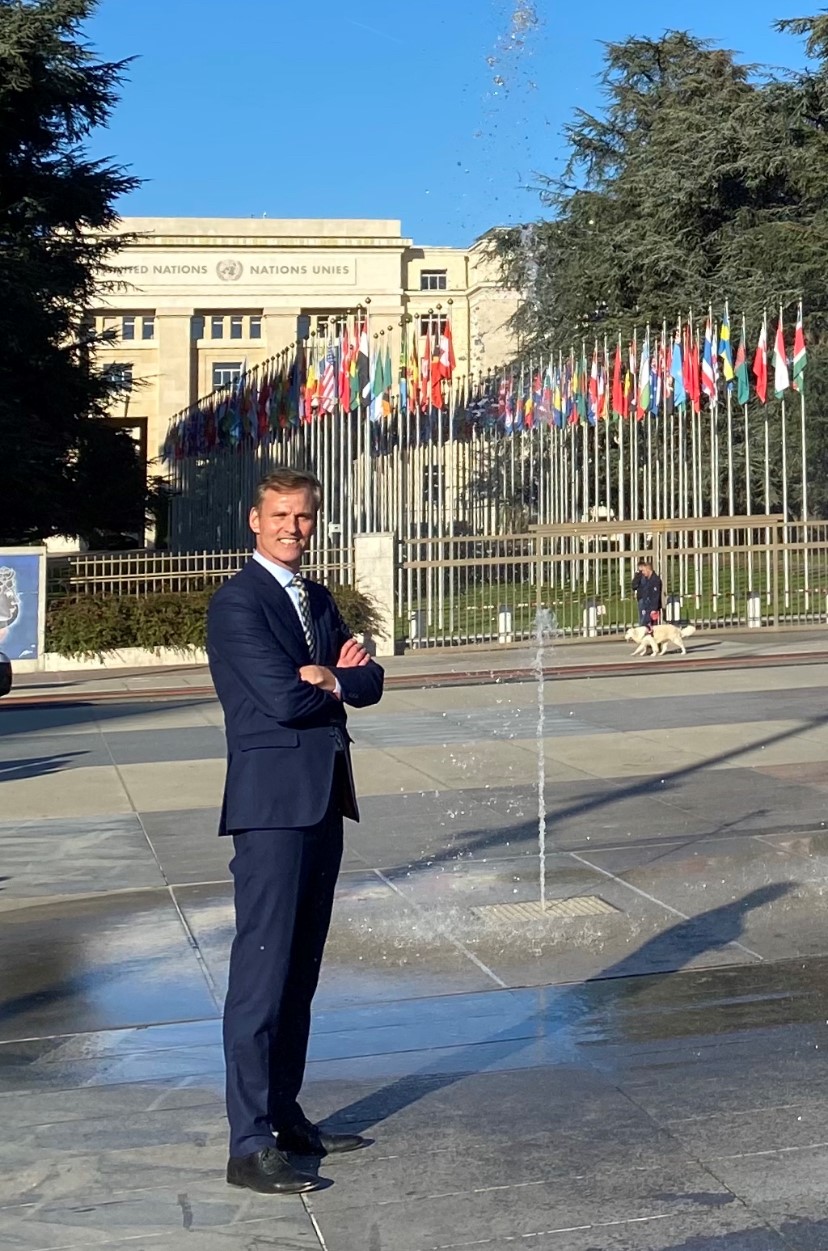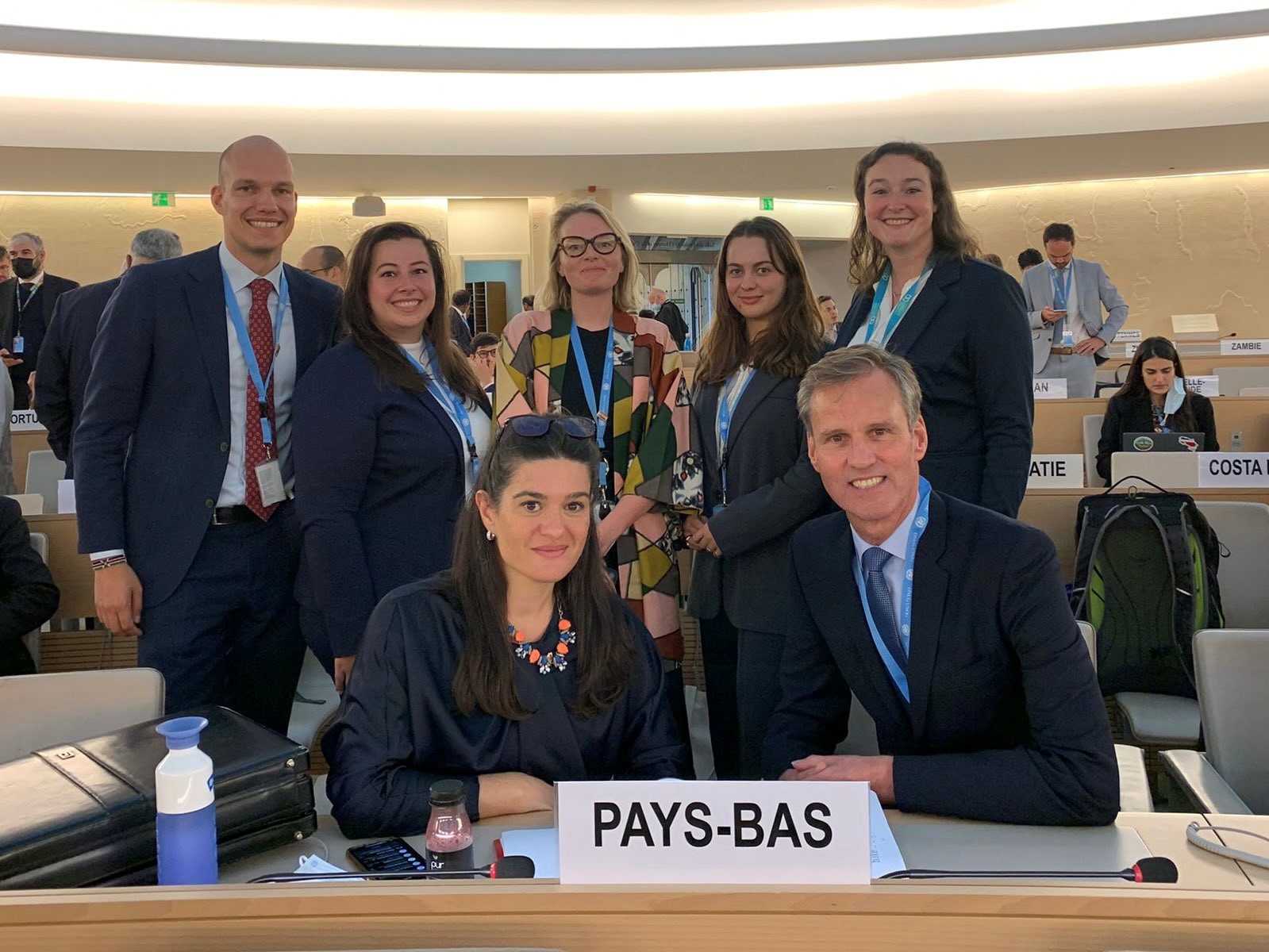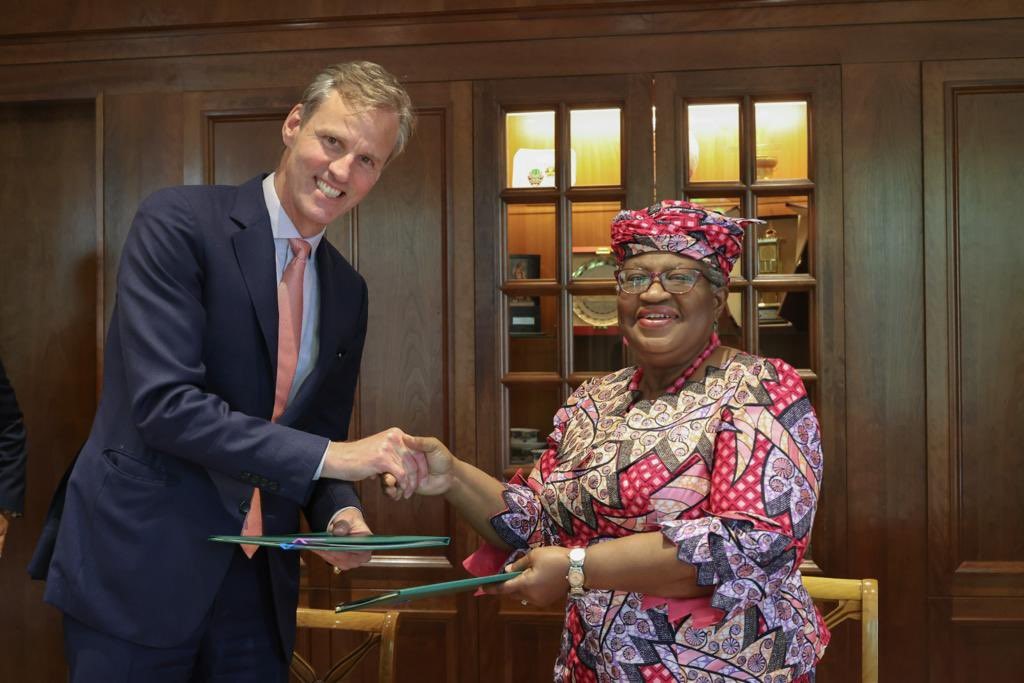Meet the Permanent Representative - PR UN, WTO and other organisations Geneva
Meet the Permanent Representative
The Netherlands aims to unite the various parties and to work constructively together
‘It’s much better, braver and more important to continue to seek out solutions together. It is rather a sign of strength instead of weakness.’
Paul Bekkers is Ambassador, Permanent Representative of the Kingdom of the Netherlands to the United Nations, the World Trade Organisation (WTO) and other organisations in Geneva since 2021.
What does a permanent representative do?
Paul Bekkers in front of the United Nations in Geneva
‘The work I do is quite varied. Together with my colleagues I represent the Kingdom of the Netherlands within a wide variety of organisations, for example at the WHO (which deals with health), the ILO (which deals with labour relations), the Red Cross (that provides humanitarian aid), UNHCR (where we discuss the situation of refugees) or at the WTO (where we negotiate about trade policy). We work as partners with those organisations to do their work as well as possible and at the meantime we serve the Netherlands’ interests.’
‘At the same time, we are among the first to learn what’s going on in the world and how these organisations intend to respond. For example, in case of a natural disaster or conflict, the UN and the Red Cross will immediately provide help on the ground. We actively take part in the discussion on how relief should be provided. Or to give you another example, together with WHO and other countries, we’re working on drafting a pandemic treaty. How are we going to treat each other in the world if we find ourselves in another COVID-19-type scenario? We have to do better than we did the last time. So we negotiate and try to nudge the treaty in the right direction. Naturally, while working on these issues, we keep a close link with colleagues in The Hague.‘
‘The Human Rights Council (HRC) is also located in Geneva. This is the leading global forum for discussing human rights – in a wide variety of countries and in relation to numerous themes, such as freedom of expression, the elimination of torture, and minorities rights. The discussions can get quite heated at times. It’s not possible to prevent all abuses, but countries do change course if they are called to account by the HRC.’
‘In short, I have a wonderful job and feel privileged to make a difference.’
‘At the same time, we are among the first to learn what’s going on in the world and how these organisations intend to respond. For example, in case of a natural disaster or conflict, the UN and the Red Cross will immediately provide help on the ground. We actively take part in the discussion on how relief should be provided. Or to give you another example, together with WHO and other countries, we’re working on drafting a pandemic treaty. How are we going to treat each other in the world if we find ourselves in another COVID-19-type scenario? We have to do better than we did the last time. So we negotiate and try to nudge the treaty in the right direction. Naturally, while working on these issues, we keep a close link with colleagues in The Hague.‘
‘The Human Rights Council (HRC) is also located in Geneva. This is the leading global forum for discussing human rights – in a wide variety of countries and in relation to numerous themes, such as freedom of expression, the elimination of torture, and minorities rights. The discussions can get quite heated at times. It’s not possible to prevent all abuses, but countries do change course if they are called to account by the HRC.’
‘In short, I have a wonderful job and feel privileged to make a difference.’
How do you stay abreast of everything that’s happening in all those international organisations?
Paul Bekkers with the Human Rights team at the UN
‘I rely for a considerable part on my outstanding team of colleagues who know these organisations well. Whether I’m attending a meeting at for example the International Telecom Union (ITU) or the International Organisation for Migration (IOM), my very knowledgeable colleagues fill me in on what I need to know and make sure I have the right information. Without these specialists in my team I wouldn’t be able to do my work.’
Also, most of the public appearances and speeches are done by either me or my deputy.’
Does the work ever stop in that kind of a dynamic international environment?
‘Not really, no. But that dynamism is what makes our work so interesting. And in the weekend there generally aren’t any meetings. Of course, I then work as well but not to worry, I do take enough time to relax and watch Studio Sport. :-) ’
What’s your added value as a permanent representative?
‘In case an issue is particularly complex or politically sensitive and negotiations get tough, I step in. Fortunately, I have a good relationship with my fellow permanent representatives, as well as the heads of organisations. Our communication is on substance and professional, but it’s not unusual to get to know colleagues on a more personal level. If needed, we are quick to communicate, by phone, by text message or in person. So the lines of communication are short. And that keeps things smooth and efficient.Also, most of the public appearances and speeches are done by either me or my deputy.’
What does an average workday look like for you?
‘There’s really no such thing. Every day is different, from the moment I get up to when I go to bed. Everything in-between is largely determined by the latest developments and the agenda of the many international organisations here in Geneva.’Does the work ever stop in that kind of a dynamic international environment?
‘Not really, no. But that dynamism is what makes our work so interesting. And in the weekend there generally aren’t any meetings. Of course, I then work as well but not to worry, I do take enough time to relax and watch Studio Sport. :-) ’
Geopolitical relations are tense. Is this something you notice in Geneva?
Paul Bekkers and Dr. Ngozi Okonjo-Iweala DG WTO
‘Definitely. There are plenty of issues and tensions between countries - and my fellow permanent representatives represent those countries. But diplomats know and understand that you have to remain in dialogue. Even when – or especially when – you don’t share the same worldview. If those of us who work with one another at the UN, WTO and other organisations, stop talking and trying to work things out, the world truly is in a dire state. When you talk to people and listen closely to what they’re saying, things often are considerably more nuanced than at first thought. A lot of the world’s misery is due to preconceived notions, bias and manipulation.’



